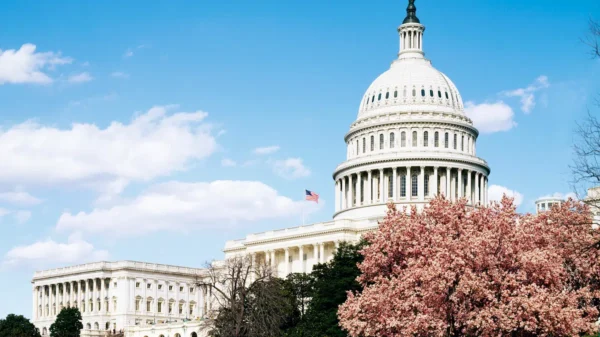A Calgary-based finance company has raised ten million dollars to build a digital Canadian stablecoin, with major backers including Shopify (NASDAQ: SHOP), Wealthsimple (TSE: WSRI), and National Bank (TSE: NA).
Tetra Digital announced its plans on Tuesday to launch the first Canadian stablecoin next year, pushing Canada into the global race to digitize money.
Stablecoins are cryptocurrencies tied to national currencies or commodities. Their value mirrors assets like the Canadian dollar or gold. A loonie-backed stablecoin could be exchanged for an actual dollar without extra fees, anywhere in the world.
“There’s a lot of U.S. stablecoins right now,” said Didier Lavallee, CEO of Tetra Digital. He also argued Canadian businesses want digital tools denominated in their own currency. In his view, stablecoins will let companies transact online in Canadian dollars while avoiding delays and costs.
Stablecoin supporters envision widespread use. Canadians could pay for e-commerce, send money abroad, and trade crypto without volatility. These transactions also occur on blockchains, not through traditional banking systems. In addition, blockchain ledgers record and verify exchanges instantly.
That speed raises concerns. For example, experts warn stablecoins lack the fraud protections banks provide. Further, illegal transfers could pass unnoticed without strong oversight.
Canadian advocates are pressing Ottawa for regulation. They argue Canada risks falling behind as other nations embrace digital money. The U.S. passed the GENIUS Act this summer, allowing major companies like Walmart to issue USD-backed stablecoins.
Industry leaders also saw the Trump administration’s move as legitimizing stablecoins. Other countries interpreted it as a catalyst to create their own frameworks. China has shown particular concern, fearing American digital dollars will reassert U.S. currency dominance.
Read more: The age of the cryptocurrency pivot: A Mugglehead roundup
Read more: TNF Pharmaceuticals surges 16% on crypto pivot and LightSolver partnership
Stablecoins are not central bank digital currencies
Canadian advocates call it a question of sovereignty. Lavallee argued that using U.S. stablecoins supports American markets, not Canadian ones. He believes domestic stablecoin purchases will strengthen the Canadian economy rather than outsource value to the U.S. Treasury.
Stablecoins differ from central bank digital currencies (CBDC). The Bank of Canada shelved plans for a digital loonie last year, choosing instead to study the global market.
Regulation remains unclear in Canada. Some authorities classify stablecoins as securities, subjecting them to the same rules as stocks. However, the crypto sector opposes that stance, preferring stablecoins be regulated as e-tokens. The U.S. and EU have taken this lighter-touch approach.
Being labelled securities could hinder adoption. In contrast, U.S. rules require issuers to hold reserves of traditional currency to back coins. Coinbase Global (NASDAQ: COIN), a major crypto exchange and Tetra investor, has urged Ottawa to act quickly on similar laws.
“A Canadian-denominated stablecoin would help with payments, cross-border transactions, and foreign exchange,” said Lucas Matheson, CEO of Coinbase Canada. He argued Canadian projects lack clarity, preventing them from moving forward.
Clear rules would define acceptable reserves. Regulators must decide what percentage can be backed by cash versus government treasuries. Tom Duff Gordon, Coinbase’s vice-president of international policy, said stablecoins could also appeal to foreign investors. In his view, a regulated Canadian stablecoin would offer easier access to Canadian dollars.
Skepticism remains, however.
“Prove to me you actually have the assets to back this,” said Brent Arnold, founder of Capstan Legal and chair of the Canadian Internet Society.
He also stressed that assets must be liquid and stable to prevent collapse. Arnold also raised legal uncertainties. Global discrepancies in crypto laws create friction for investors.
.














